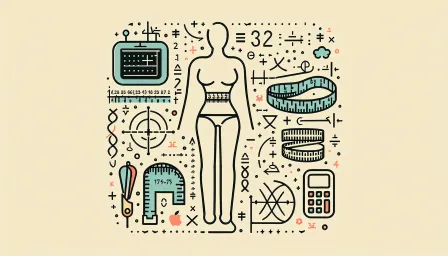Discover the Connection Between Paleo Diet and Heart Health

Learn about the Paleo diet and heart health. Explore how the Paleo diet can influence cardiovascular well-being and the scientific studies supporting it.
Cardiovascular disease remains the leading cause of death worldwide. With heart health being a major concern, many people are turning to different dietary approaches to protect their hearts. One such approach is the Paleo diet. This article delves into the connection between the Paleo diet and heart health, examining scientific evidence and providing insights on how this ancient diet can impact your cardiovascular well-being.
Understanding the Paleo Diet
The Paleo diet, also known as the Paleolithic diet or caveman diet, is based on the presumed dietary patterns of our Paleolithic ancestors. The diet primarily consists of whole foods that could be obtained by hunting and gathering, such as:
- Meat
- Fish
- Fruits
- Vegetables
- Nuts and seeds
It excludes dairy products, legumes, grains, processed foods, and sugars. Proponents of the Paleo diet argue that modern agricultural practices have introduced foods that are not well-suited to our genetics, contributing to chronic diseases like heart disease.
The Paleo Diet and Heart Health
Exploring the Paleo diet and heart health involves looking at various factors:
Reduction in Inflammatory Foods
Chronic inflammation is a known risk factor for heart disease. The Paleo diet significantly reduces the intake of foods associated with inflammation, such as refined sugars, grains, and processed foods. By prioritizing whole foods, the diet helps decrease inflammation, potentially resulting in better heart health.
Improved Lipid Profile
Several studies have shown that the Paleo diet can lead to an improved lipid profile. For instance, a study published in the European Journal of Clinical Nutrition found that participants following a Paleo diet had lower levels of total cholesterol, LDL cholesterol, and triglycerides, along with higher levels of HDL cholesterol.
Blood Pressure Regulation
Hypertension, or high blood pressure, is a significant risk factor for heart disease. The Paleo diet's emphasis on nutrient-dense foods such as fruits and vegetables, which are high in potassium and magnesium, can help regulate blood pressure levels. Potassium, in particular, helps offset sodium's effect on blood pressure.
Weight Management
Obesity is a well-established risk factor for heart disease. By focusing on whole, unprocessed foods, the Paleo diet can aid in weight loss and maintenance. A study published in the American Journal of Clinical Nutrition reported that individuals on a Paleo diet experienced significant weight loss and reduction in waist circumference, which are important for reducing cardiovascular risk.
Scientific Studies on Paleo Diet and Heart Health
Clinical Trials and Meta-Analyses
Several clinical trials and meta-analyses have explored the impact of the Paleo diet on heart health. One meta-analysis published in the American Journal of Clinical Nutrition reviewed four randomized controlled trials and found that the Paleo diet was associated with greater short-term improvements in metabolic syndrome components, including better blood pressure and cholesterol levels, compared to standard diets.
Case Studies and Long-term Research
In addition to clinical trials, case studies have also highlighted the benefits of the Paleo diet. Individuals with cardiovascular risk factors have reported marked improvements in their blood lipid profiles, weight, and overall wellness after adopting a Paleo lifestyle. However, long-term research is still needed to fully understand the sustained impacts of the Paleo diet on heart health over an extended period.
Practical Advice for Adopting the Paleo Diet for Heart Health
Interested in trying the Paleo diet to improve your heart health? Here are some practical steps to get started:
Consult with a Healthcare Professional
Before making any significant dietary changes, it's crucial to consult with a healthcare professional, especially if you have underlying health conditions or are taking medications.
Gradual Transition
Switching to the Paleo diet can be challenging. Consider making gradual changes to ease the transition. Start by eliminating processed foods and gradually incorporate more whole, nutrient-dense foods into your meals.
Focus on Quality
Emphasize quality over quantity. Choose grass-fed meats, wild-caught fish, and organic produce whenever possible to maximize the nutritional benefits.
Balanced Diet
Ensure you maintain a balanced diet. While the Paleo diet emphasizes protein and healthy fats, it's essential to include adequate portions of fruits and vegetables to meet your nutritional needs.
Conclusion: Is the Paleo Diet Right for You?
The connection between the Paleo diet and heart health is supported by both scientific research and anecdotal evidence. By focusing on whole, unprocessed foods, the Paleo diet can lead to reductions in inflammation, improvements in lipid profiles, better blood pressure regulation, and effective weight management – all of which are crucial for heart health.
However, as with any diet, individual responses may vary. It's essential to consult with a healthcare professional before making significant dietary changes. With careful planning and a gradual approach, the Paleo diet could be a valuable tool in your journey toward better heart health.



























